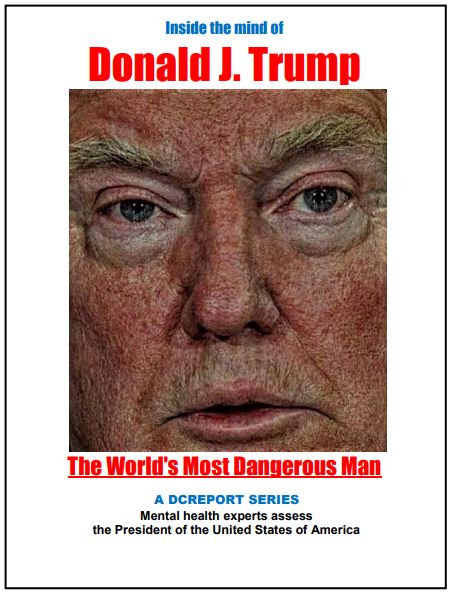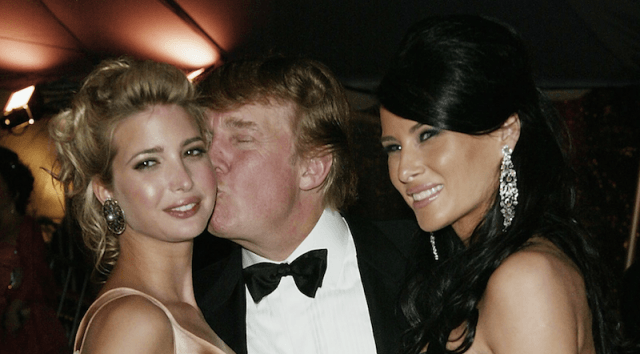Part 2 of a DCReport Series: A Feminist Perspective on Mary Trump’s Portrayal of the World’s Most Dangerous Man

Lee: I started these interviews because I was struck by the meager attention paid to Dr. Mary Trump’s expertise, which I found to be considerable and, as usual, the total absence of interviews of mental health experts on the president’s mental health. What do you believe is the cause of this disregard for expertise, and do you believe her gender has something to do with it?
Kaschak: Yes, of course. While she is clearly an expert, her gender renders her in the public mind as less of an authority and possibly even as having a score to settle because of well-documented attribution bias.
Donald is the kind of man plagued with inadequacy who hates and fears women who do not yield to his sense of superiority.
However, the media also play a role, as does the popular propensity to think rapidly and somewhat superficially in the Internet age, favoring superficial feeling over deep thought and analysis. This is evidenced by the enormous number of copies of her book that were purchased so rapidly and enthusiastically, yet making little real impact so far.

Finally, while mental health has earned greater respect in recent years, there is still a great deal of American skepticism concerning expertise, fueled very much by the anti-intellectualism of the culture. Donald Trump has been exposed but also well-protected and enabled by his co-conspirators, including Attorney General William Barr, Sen. Mitch McConnell (R-Ky.), and Russian President Vladimir Putin. I believe that the majority of the public is listening to us and watching event after event with dismay and exhaustion. I believe they are listening to Mary Trump and to us, but looking to the election for the solution.
Given what Dr. Trump says about how Donald grew up, with his mother dealing mainly with the girls and his father with the boys, how do you explain Donald’s odd fixation on Ivanka? In light of what we know about his view of women, is there an increased likelihood of abuse, intentional or not?
In my reworking of psychodynamics and psychotherapy from a feminist perspective, I have focused on Oedipus as the entitled father or king, and Antigone, his sister or daughter, as a mere extension of her father. This remains the predominant relationship in patriarchal societies and clearly describes the relationship of the entitled Donald and his dutiful daughter. In his eyes, she is merely an extension of his own glorious self, and he is entitled to her every service. Antigone gave her eyes over to her father. Other women have had to give over their bodies. This entitlement includes making sexual comments about her and extends to sexual abuse, if he so chooses.
In his eyes, Ivanka is merely an extension of his own glorious self, and he is entitled to her every service.
There is not only an increased likelihood of abuse, but this is the paradigm for toxic masculinity, which includes a cultural entitlement to abuse women consciously and unconsciously. The underlying belief is, “If I want it and am gratified by it, then so is she because my feelings are hers.” Words like these are the most common defense of abusers.

Donald is clearly an abuser, as evidenced by his comments and treatment of women in public, his puerile bragging about what he can do to them because he is “famous,” his very public association with strippers, porn stars, and prostituted women, and his apparent close association with Jeffrey Epstein’s child trafficking enterprise.
Does Donald’s upbringing, as revealed in Dr. Trump’s book, explain his treatment of women whom he attacks or abruptly walks out on, calling women reporters “nasty”, for example, or refusing to shake hands with Angela Merkel of Germany, while engaging in prolonged handshakes with men, such as Emmanuel Macron of France? Why do you believe he responds that way?
Donald is the kind of man plagued with inadequacy who hates and fears women who do not yield to his sense of superiority. This includes women who are strong, courageous and do not yield to his empty narcissism and false entitlement.
This group of women includes Angela Merkel, Hillary Clinton, and Nancy Pelosi and is also evidenced by the women who work for him that he can “own,” such as Kellyanne Conway, Betsy DeVos, and even Dr. Deborah Birx, whom I consider all to be abused women. He has also expressed his disgust and disdain for women’s natural bodily functions such as menstruation. He is emotionally and intellectually still that three-year-old taken from his mother.
Donald started attacking U.S. cities in the same week as her book, apparently in part to distract from it, which was a bombshell. Ironically, by responding only to the latest flashy events, the media prevent us from keeping our eyes on the analysis and therefore the core issues that need addressing the most. How can we remedy this situation?
In Part 3 of ‘Inside the Mind of Donald J. Trump’

Coming next: A psychoanalytic perspective on the Donald Trump portrayed in Mary Trump’s ‘Too Much and Never Enough’.
This is perhaps the most difficult issue of all. Clearly the media control and focus, or unfocus in this case, public attention and its greatly reduced attention span. However, this is a symbiotic relationship in that the media base their work on the human propensity for the novel and exciting in order to make money and to compete.
As a result, any changes in the workings of the media have to involve a systemic change not based in capturing more eyes and, therefore, more bucks. Concomitantly, this involves change in the habits of the public.
Needless to say, the system of choosing representatives of the population to focus deeply on governing issues, and to understand psychological dynamics well enough to change policy, has failed completely in the case of Donald Trump.





